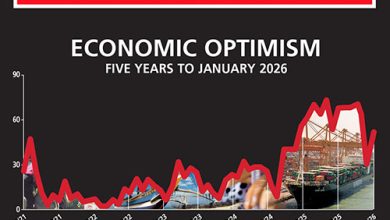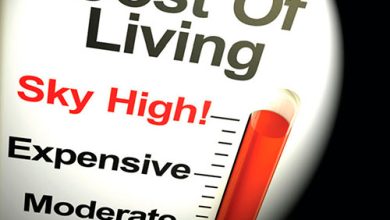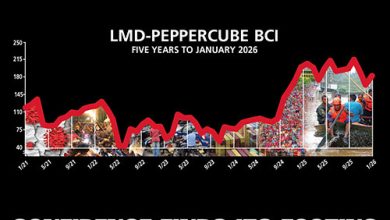BUSINESS SENTIMENT
POST-ELECTION SURGE IN CONFIDENCE The unique index skyrockets to a 42 month high following the presidential poll With a general election on the horizon, Sri Lanka stands at a pivotal point once again, as the country’s future rests in the hands of those who will be elected to govern. Meanwhile, the business community has had its say on the outcome of the presidential election with optimism reigning supreme. And in…
POST-ELECTION SURGE IN CONFIDENCE
The unique index skyrockets to a 42 month high following the presidential poll

With a general election on the horizon, Sri Lanka stands at a pivotal point once again, as the country’s future rests in the hands of those who will be elected to govern.
Meanwhile, the business community has had its say on the outcome of the presidential election with optimism reigning supreme.
And in a welcome external economic assessment, the World Bank increased its growth forecast for this year to 4.4 percent (and a more modest 3.5% for 2025) – from 2.2 percent previously.
“Sri Lanka’s recent economic stabilisation, marked by four quarters of growth and a current account surplus in 2023, is a significant milestone,” affirmed David Sislen – the World Bank’s Country Director for Maldives, Nepal and Sri Lanka – in a 9 October news release.
THE INDEX In October, the LMD-PEPPERCUBE Business Confidence Index (BCI) surged by a whopping 39 basis points to reach 139 – the highest in as many as 42 months.
To put this spike in perspective, the last time the BCI gained as much ground in a month was back in January 2021, when Sri Lankans breathed a sigh of relief upon receiving news that the COVID-19 vaccine would be available to them.
Moreover, this is the highest point the index has reached in 2024 and marks the third time it registered triple digits this year – the previous instance being three months ago when the official rate of inflation began to fall to manageable levels.
In addition, the barometer is now 17 notches higher than its historical median (122) and 45 points ahead of its average in the last 12 months (94).
PepperCube Consultants observes that despite the uncertainties faced by corporates in recent months, the election outcome has been positively received.
It adds that optimism about both the economy and business activity has risen significantly, following a period of heightened caution and a ‘wait and see’ mindset leading up to the 21 September election.
SENSITIVITIES At the summit of the list of sensitivities is what the next parliament will look like, following the 14 November general election – and how the balance of power in the house will impact the country’s macroeconomic outlook.
Meanwhile, the critical IMF staff level visit that concluded on 4 October saw officials express optimism about the government’s commitment to advancing Sri Lanka’s reform agenda. Productive discussions resulted in an agreement to build on the nation’s “hard-won” gains.
This in turn won plaudits from Fitch Ratings, which said it reduces the risk of the debt restructuring process associated with the presidential poll outcome.
During the meeting, the president reaffirmed his support for the IMF’s US$ 3 billion funding programme but emphasised the need to achieve his party’s objectives to ease the burden on the people.
PROJECTIONS Given the surge in confidence post-presidential poll, it is unlikely that the index will fluctuate substantially in the aftermath of the parliamentary election – unless the political status quo changes drastically – once again.






